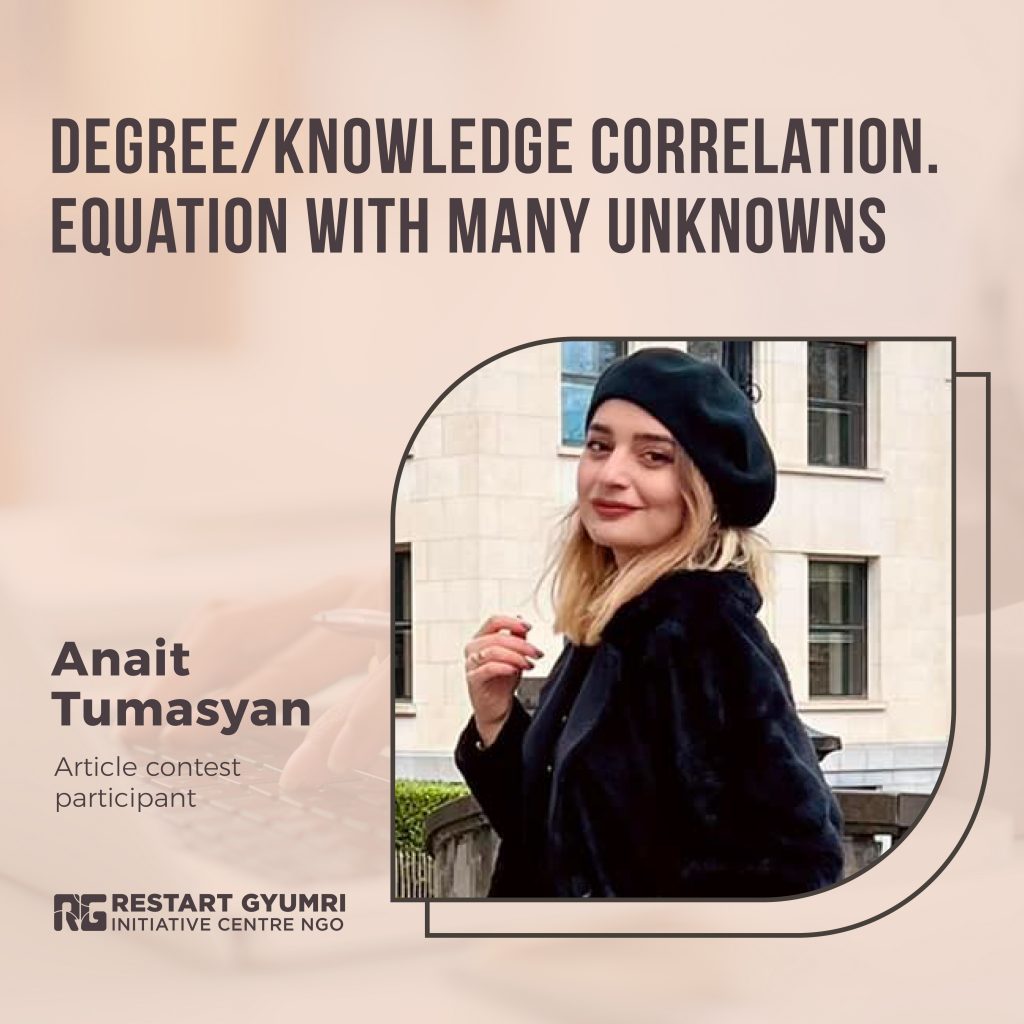In the 12th century, when the oldest university in the world, the University of
Bologna, was being established as a precedent for modern universities, there were
no alternative options for studying the prescribed majors. And the given certificate
was the only one accepted by the given society, which should confirm the
acquisition of knowledge.
Nowadays, and especially in Armenia, continuing academic education in
universities after primary school is the most logical way. At the same time, other
training centers and distance courses are multiplying and gaining momentum,
which tend to transfer practical knowledge and skills in the chosen profession in a
shorter period of time.
In this case, when the possibilities are diverse, can university education remain in
“monopoly” positions, as it was from the beginning?
There are many challenges that are developing day by day, public demands are
subject to change. There are definitely problems in the field of academic higher
education, but the purpose of the article is to look at the issue from a public
perspective.
The problem became more obvious when the foreigners who recently moved to
Armenia, although with many years of work experience, but not having a
university diploma, faced a major barrier, entering the labor market. It is not news
that most of the job announcements regularly mention the requirement of a
diploma. However, if the diploma is just confirmation, accepted by the society, of
the possession of professional knowledge, then at least in the case of work
experience, it cannot be considered as a mandatory condition, because the
professional skills have been proven in a more practical environment. And if that is
not enough, the stock of required knowledge can be determined through
professional tests, for example during interviews.
Without doubting the importance and role of academic education in our society, it
must be stated that in today’s times, a university diploma cannot be the only “Open
Sesame” to enter the labor market.
Informal education, i.e. that which is organized outside the university walls thanks
to various educational centers and courses, beyond its complementary nature, can
also be considered as an alternative way, de facto, leading to almost the same
result.
It helps to acquire no less important qualities for a future specialist, for example, a
special sense of responsibility. Informal education does not include verification
mechanisms, hierarchical relationships. as a result, the entire responsibility for
acquiring knowledge can only be on one’s own shoulders, and the awareness of this
responsibility is a very important quality for a specialist.
The important role of academic education is both the cause and the consequence of
great public trust. The university diploma and the desire to be as red as possible,
the guarantee that the given knowledge has been well acquired. This is what we
legitimately believe. In general, the most important public institutions, of which
the university is also a part, are hardly questioned, criticized, transformed,
replaced, and it is futile to consider this as an end goal.
However, showing a little public trust in non-formal education can lead to a
number of positive changes. at least now, the ball is in the employers’ court.
The supposed indispensability of academic education is a very serious barrier when
the social context has changed a long time ago, and the barrier must be overcome,
otherwise we choose diplomas over knowledge and people who have made choices
outside of the prescribed drawing are in for very serious problems. face in the labor
market.
If we value the content of the diploma, i.e. the theoretical and practical knowledge
attested, and not the form, then we should be able to see them (if there are any of
course), also outside the required diploma; we will have reasonable and
professional employers, really good dentists and de facto valued knowledge.
(Reminder: of course, there are professions, for example in the medical field, in
which university education cannot be replaced in any way, and definitely, the
above observations cannot apply to them.)


More Stories
Բուհական խնդիրները Հայաստանում
«Ռեստարտ Գյումրի» երիտասարդական-քաղաքացիական կենտրոնը հայտարարում է վիդեոհոլովակների մրցույթ
Արհեստական բանականության մոդելների կիրառումը կրթության մեջ